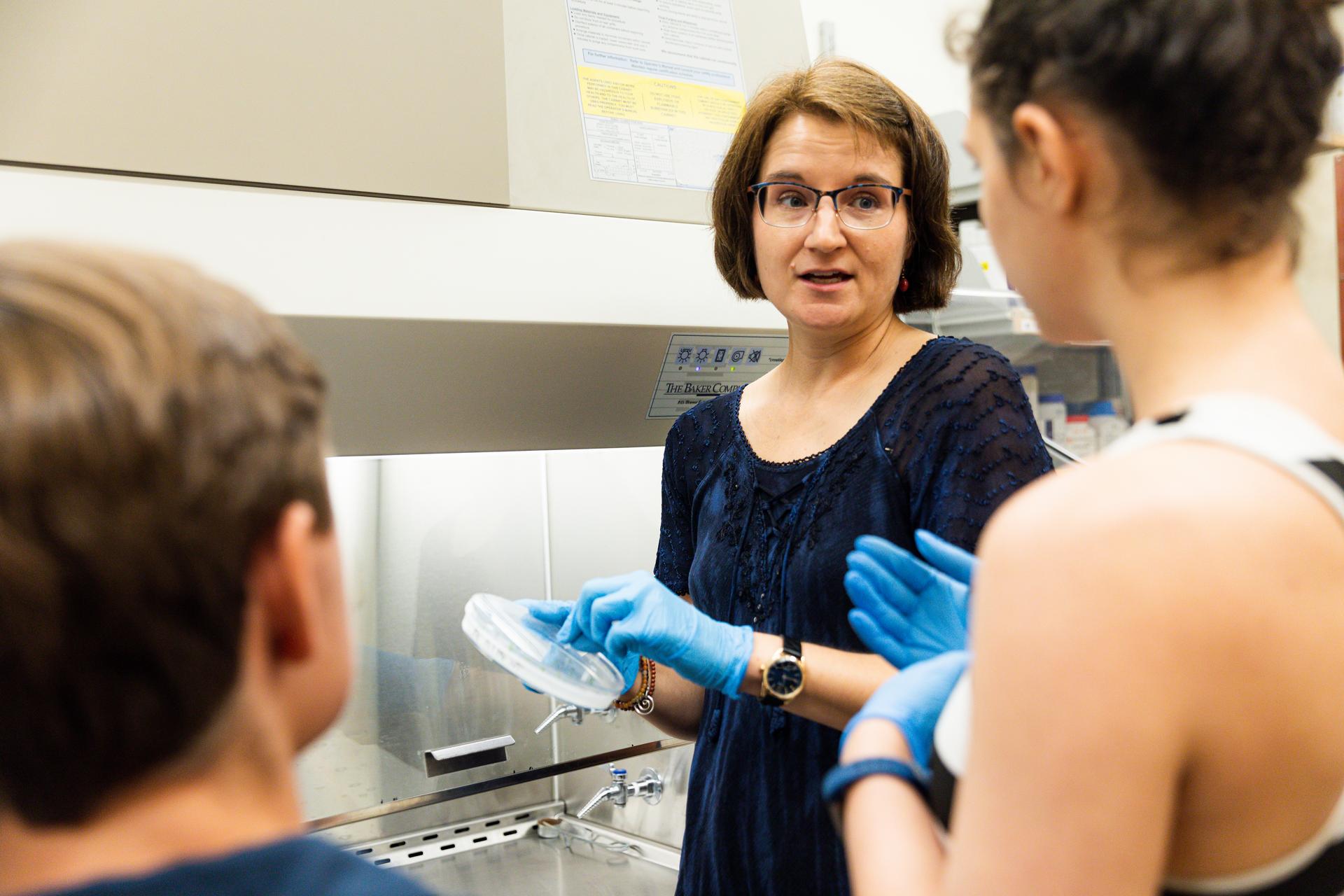
Leeann Thornton, professor of biology at TCNJ, has been named president-elect of the American Society of Plant Biologists.
She will begin her term on October 1, 2022.
“It’s a tremendous honor to be selected to represent this society because my identity as a plant biologist has always been a huge part of my career,” Thornton said. “This position will allow me to interact with more of my colleagues around the world. I will be immersed in the plant biology community and will be more tuned into the biggest questions and leading issues that we need to address in our field.”
Thornton is especially proud to have been the first ASPB president-elect chosen from a primarily undergraduate institution.
“It’s a big deal that ASPB is diversifying its leadership and drawing from different types of institutions,” she said. “TCNJ is a model for primarily undergraduate institutions with excellent research opportunities and strong support for faculty members.”
Thornton, who has been at the college since 2007, got her first experience with ASPB when she was an undergraduate at James Madison University in 1997. She won a research competition and earned a yearlong membership which exposed her to the benefits of being part of the organization.
Now she will lead the group of over 4,000 worldwide members.
One of her primary goals as president-elect and then president is to further the society’s diversity and inclusion efforts.
“ASPB was fortunate to receive a National Science Foundation grant that is facilitating training and conversations around increasing diversity and inclusion in our field,” Thornton said. “This grant will help ASPB and other professional societies come together, receive training, and embark on projects that improve diversity and inclusion and knock down barriers in the plant sciences.”
The American Society of Plant Biologists was founded in 1924 to promote the growth and development of plant biology, to encourage and publish research in plant biology, and to promote the interests, growth, and education of plant scientists. Over the decades the society has evolved and expanded to provide a forum for molecular and cellular biology as well as to serve the basic interests of plant science. It publishes the highly cited and respected journals Plant Physiology and The Plant Cell, and co-published the sound science open access journal Plant Direct. Membership spans six continents, and members work in such diverse areas as academia, government laboratories, and industrial and commercial environments.
— Luke Sacks
